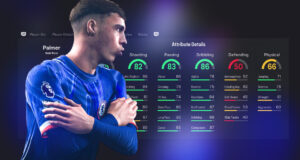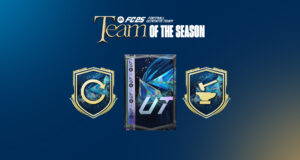Electronic Arts’ Football Ultimate Team (FUT) has evolved from a secondary game mode to the premier attraction of the football simulation franchise. Since its inception in FIFA 09, the virtual card-collecting feature has become a money-making machine with billions at stake and millions of users worldwide under its enchantment.
As EA moves into its rebranded EA Sports FC franchise, the underlying mechanics that have helped make Ultimate Team so addictive are still firmly in place, with randomly distributed reward systems likely to continue driving player engagement and spending.
The Fine Line Between Gaming and Gambling
Opening card packs in FIFA Ultimate Team bears striking similarities to traditional gambling activities. While in-game currency can only get you so far, many gamers use actual money on packs of random player cards with no one knowing what they will receive, creating the same psychological pattern of reactions as in traditional gambling activities.
The expectation of breaking open a pack and then disappointment or elation, depending on what is discovered, is the same emotional process that occurs at casinos or with lottery scratch cards.
If players open a pack and receive an amazing player, they’re encouraged to open another to take advantage of their “hot streak”. If they receive poor rewards, they’re more likely to buy more packs in the hopes of getting better rewards next time.
For others who get a kick out of the suspense and rush of adrenaline associated with such randomized rewards, online casino sites that have slot machines are the closest comparison to Ultimate Team pack openings.
Both are predicated on the idea of wagering a bet (coins or actual money) for the possibility of gaining a random reward. In slot machines like the ones available here, gamers spin the reels in the hopes of landing a low-chance combination to win a large payout, which is similar to hoping to pull a high-rated player from a FUT pack.
The Psychology Behind Random Rewards
Random rewards are extremely effective at keeping players engaged because of how the brain responds to surprise positive outcomes. When a player experiences an unexpected win, the brain releases dopamine, which creates sensations of pleasure and satisfaction. This chemical association makes the game and its enjoyable nature strong enough to have players returning for repeat doses of the same.
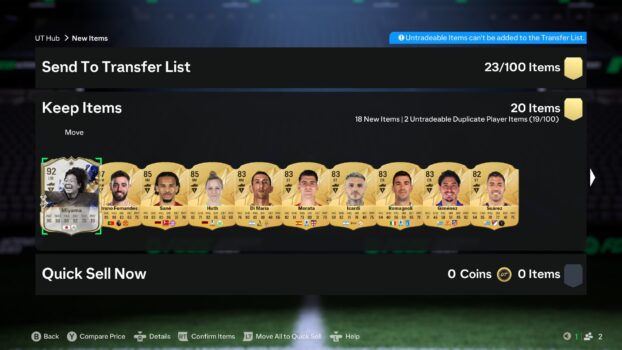
EA takes advantage of this psychological response with “variable reward schedules”, a well-researched phenomenon in behavioural psychology. Scientists have shown that variable rewards lead to more persistent behaviour than fixed ones. The unpredictability creates suspense that makes it hard for players to quit.
More recent research has also uncovered associations between loot box play and sensations of game-related “flow”, a state of complete immersion. The “Distraction/Compulsion” motivation for purchasing loot boxes is most highly correlated with risky loot box use, suggesting that many players use these mechanics as an escapism strategy.
A Billion-Dollar Business Model
The financial implications of Ultimate Team are mind-boggling. FIFA Ultimate Team brought in $1.62 billion in revenue during fiscal year 2021, which was 53% of EA’s overall extra content revenue. This equated to almost 29% of EA’s total $5.6 billion net revenue for that year. The expansion has been steady, with Ultimate Team revenues growing from $587 million in FY2015 to more than $1.6 billion in FY2021.
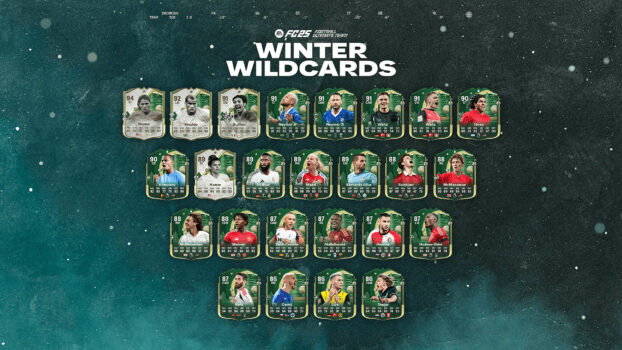
Later fiscal reports still reveal the mode’s significance to EA’s business model. During the third quarter of fiscal year 2025, EA’s Global Football franchise (recently rebranded as EA Sports FC) remained one of the world’s largest sports entertainment properties, growing over 70% during the past five fiscal years.
The company’s January 2025 gameplay update for FC 25 fuelled engagement ahead of expectations, re-engaging over two million Ultimate Team players that had lapsed earlier in the launch cycle.
Player Engagement and Retention Strategies
EA uses sophisticated strategies to get maximum player spend and retention. Time-sensitive, event-based activities such as “Team of the Year” create urgency and novelty that result in tremendous activity spikes. EA’s just-concluded Team of the Year of EA Sports FC 25 has been called a “record success” by EA CEO Andrew Wilson.
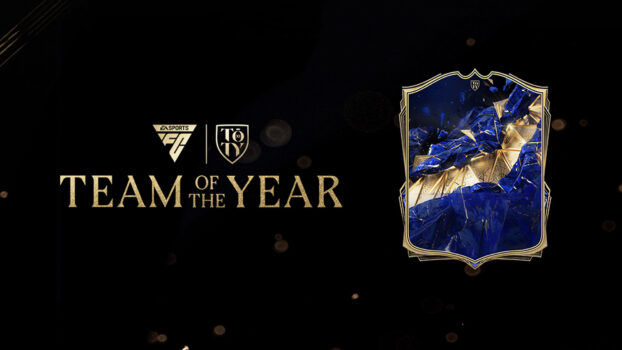
The player retention strategy of the company goes beyond the console. EA Sports FC Mobile experienced double-digit growth in new players and activity year-over-year during early 2025. The wider reach diversifies the fan base, with EA citing that the largest mobile markets include territories across the Middle East and Southeast Asia.
Overall player statistics indicate high current player activity. During May 2025, EA Sports FC 25 had about 150,000 peak concurrent players across all platforms, and Steam charts registered about 7,981 approximate peak concurrent players.
Regulatory Challenges and Industry Response
The gambling similarity has been drawing regulatory interest in various jurisdictions. Loot boxes have been banned by Belgium since 2018, yet others still balance bringing potential regulation. Despite this, EA has been achieving substantial legal wins in defending its business model.
In October 2024, the Vienna Higher Regional Court ruled that FIFA Ultimate Team packs are not considered gambling because players do not buy them with the aim of making money but to play within the game. Likewise, the Netherlands’ Highest Administrative Court ruled that FIFA Ultimate Team is not gambling according to Dutch law.

EA maintains that its optional in-game purchases are implemented ethically, emphasizing that “spending is always optional, and most players choose not to spend at all”. The company designs FUT packs to “bring choice, fairness, value, and fun”, according to its public statements
Looking Forward
While arguments about the regulatory and ethical implications go on, randomized reward systems available in FIFA Ultimate Team have revolutionised not just sports games but the whole gaming industry’s model of monetisation and retention. For the foreseeable future, opening packs and pursuing rare player cards will be part of football gaming for millions of gamers worldwide.
 FIFA Infinity The Absolute FIFA Site
FIFA Infinity The Absolute FIFA Site


